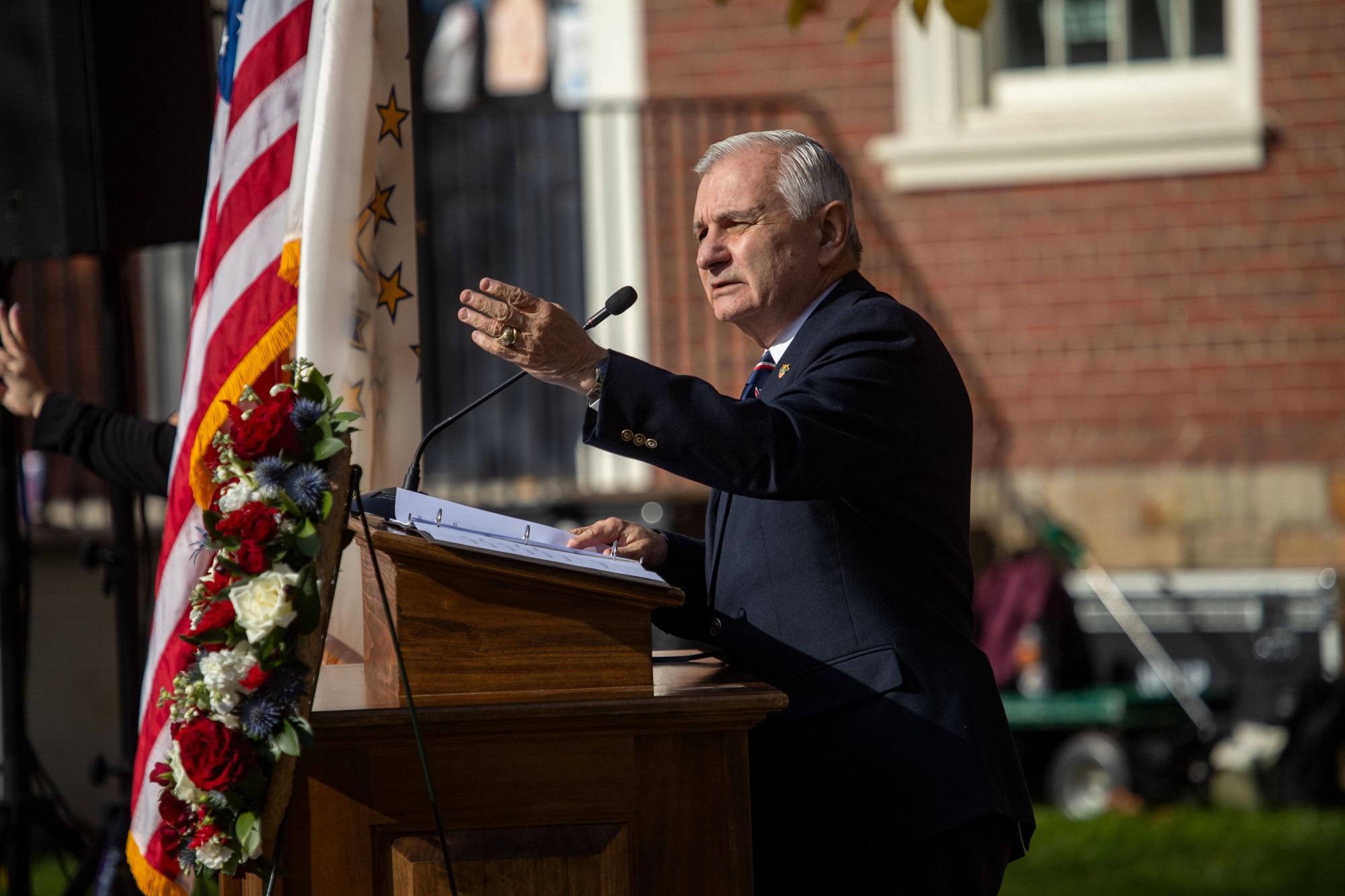As part of its Defense Established Program to Stimulate Competitive Research program, the U.S. Department of Defense has awarded grants to two projects led by Brown University researchers.

Brown faculty members Mauro Rodriguez and Jia Li will serve as principal investigators for the respective projects studying the theoretical modeling on soft materials that may one day be used to better predict the response of the human body to blunt impact, and electrons in 2D materials.
The grants will provide approximately $600,000 in total for each project over the course of the next three years.
The support comes as part of a Department of Defense effort to bolster science and engineering research in areas important to U.S. defense through a research competition known as DEPSCoR. Established in 1994, the program is designed to strengthen basic research infrastructure at higher education institutions in states or territories that have traditionally been underutilized. This year, the agency awarded $18 million in DEPSCoR awards to 28 academic teams from 15 states. The 28 projects, including the two based at Brown, were selected from 115 white papers that qualified for the competition.
“The idea behind DEPSCoR is for the Department of Defense to cultivate and tap into an ecosystem of researchers found in states eligible for DEPSCoR,” said Jill Pipher, Brown’s vice president for research and a professor of mathematics. “Brown researchers have a lot to offer the DOD and the nation when it comes to basic research, including where learnings from the work can be applicable and critical to national security. We are grateful to the Department of Defense and especially to U.S. Senator Jack Reed for his continued leadership and support of DEPSCoR.”

Reed has represented Rhode Island in the U.S. Senate since 1996 and is chairman of the Armed Services Committee and a senior member of the Senate Appropriations Subcommittee on Defense. The subcommittee secured $20 million for DEPSCoR in 2023’s Consolidated Appropriations Act, ensuring that universities in DEPSCoR states like Rhode Island can compete to perform cutting-edge basic research and partner with defense labs.
“I’m pleased DOD recognizes the breakthrough potential these projects have and is investing in not only Brown University, but the state’s research ecosystem,” Reed said. “DEPSCoR is a capacity builder that can help create new commercialization and development opportunities right here in Rhode Island.”

Rodriguez, an assistant professor of engineering, is leading the theoretical modeling effort on soft materials. The project, “Theoretical modeling of non-spherical inertial cavitation for anisotropic soft matter rheometry,” is a collaboration with David Henann, an associate professor of solid mechanics.
The work aims to advance a method for characterizing how materials, like biological tissue, become deformed when they are hit by blunt objects at high speeds. The technique, which originated at Brown, is called Inertial Microcavitation Rheometry and involves generating a single bubble, in this case using a laser, in a soft gel to measure the properties of the material at high speeds and strains. The researchers will use modern statistical modeling techniques, numerical simulations and theory to determine the properties of different kinds of soft materials and their response to the impact.
“Our ability to characterize response of soft matter at high strain rates is critically important to then begin to predict the sustained damage due to blast loading or blunt impacts,” Rodriguez said. “This basic research is at the cross-section between fluid mechanics, solid mechanics, soft matter and biomedical applications which started at Brown, and we now continue that story and aim to further advance this technique and field.”